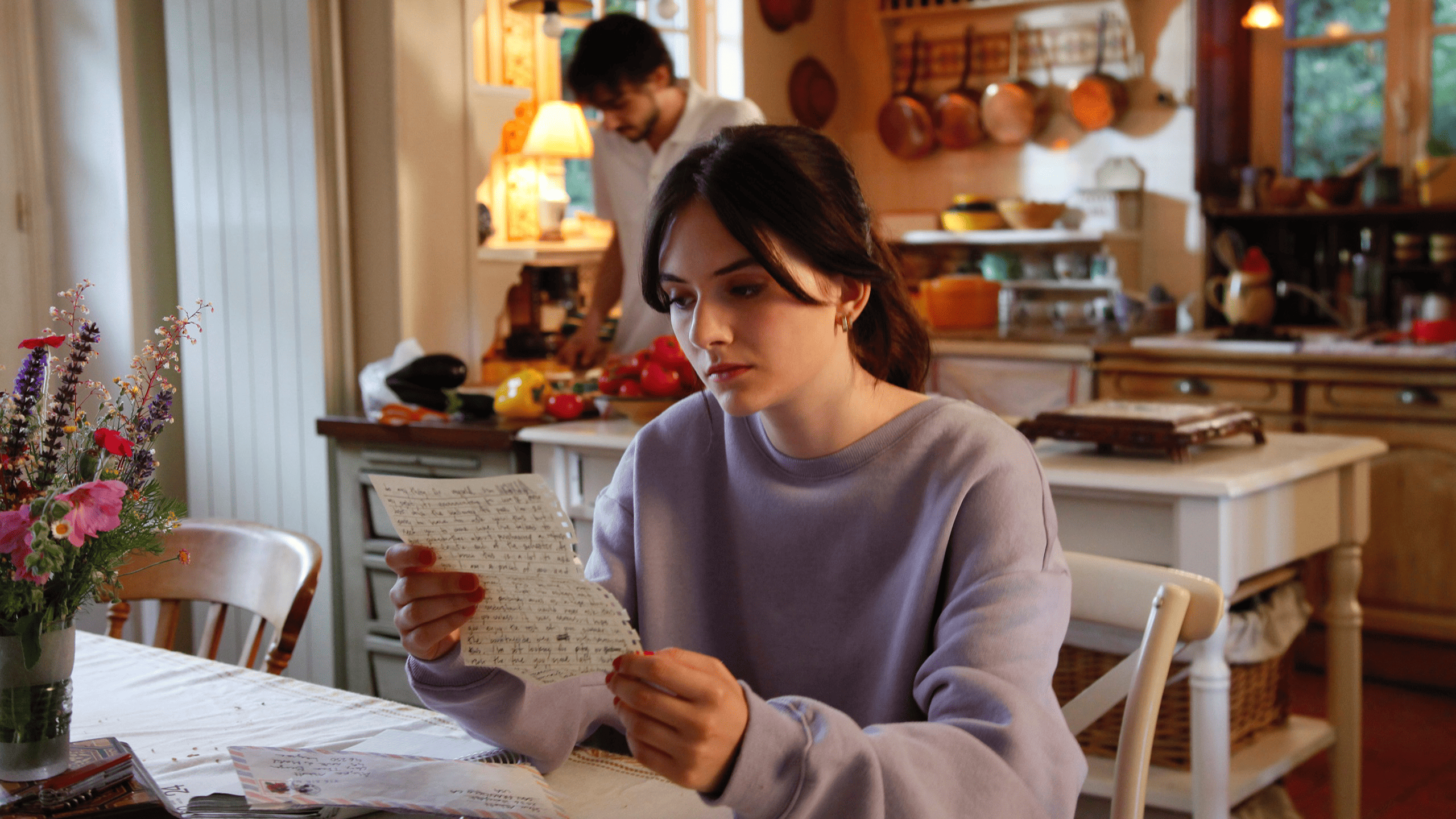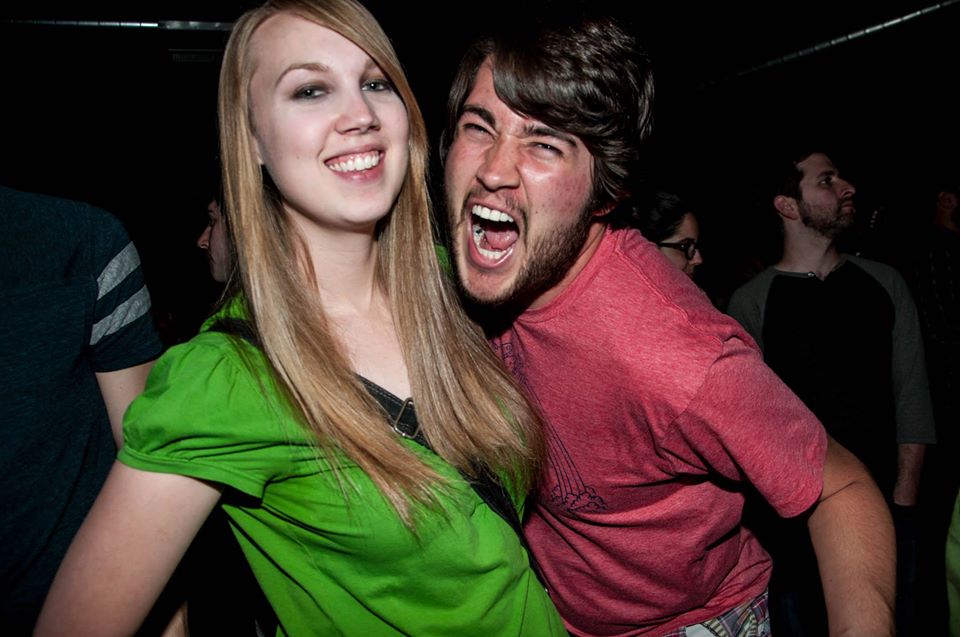When it comes to assessing the new Sundance drama Fairyland, there will inevitably be comparisons drawn to the superior, recently Oscar-nominated Aftersun. Both taking inspiration from highly personal recollections of complicated father-daughter relationships, they each offer their own distinct approach to these enigmatic men and the daughters wrestling to connect with and understand them. Aftersun has the distinct advantage of having writer-director Charlotte Wells choosing how to represent her past on screen in a way which feels authentic and relatable. Fairyland, on the other hand, takes the nimble memoir by Alysia Abbott and puts it in the hands of photographer turned writer-director Andrew Durham in his admirable feature debut. While Durham’s background is far from dissimilar to that of Abbott, there is a lack of poignant specificity that allows this to walk in the footsteps of giants.
Fairyland begins with quite the dramatic punch in 1974 as Steve (Scoot McNairy, Halt and Catch Fire) is stirred from sleep with a phone call informing him that his wife has died in a car accident while riding with a patient she had been treating for suicidal depression. The movie wisely settles into the perspective of his 5-year-old daughter, Alysia (a magnetic Nessa Dougherty), who is mature enough to know that her life has radically changed but unclear on exactly what it means that mommy is in heaven. The film leaves the audience to fill in certain gaps as Alysia only catches snippets of hushed conversations that her dad has with her maternal grandmother, nicknamed Munca (Geena Davis). She believes that Alysia would be better off being raised by her side of the family. Steve has very different ideas about their next steps.

With this incalculable loss comes a rebirth. Burgeoning writer Steve packs up his orange VW bug, shakes off the societal shackles of the Midwest, and blazes a trail to San Francisco with his young daughter. This first half of the movie establishes itself as the more narratively energized and stylistically dynamic of the two. Director of Photography Greta Zozula conjures an almost weightless feeling of discovery thanks to her use of 16mm lensing, deftly evoking the dreamlike quality of childhood naivety. The pair move into a shared space presided over by drug-dealing kook Paulette (Maria Bakalova, Bodies Bodies Bodies). Alysia is at the perfect age where she can capably interact with the larger world around her, yet not be burdened by preconceived notions of hatred that society is fated to pummel her with.
Beyond Paulette, new housemates include genderqueer Johnny (Ryan Thurston) and genial southern gentleman Eddie (Cody Fern). Alysia expands her mind so quickly, learning about everything from Toad in the hole to dresses (men can wear them!) and testicles (they float in water!). Even discovering her father sleeping with Eddie is met with healthy curiosity followed by a matter-of-fact snuggle of acceptance. There is something truly beautiful about how easily love can be accepted in whatever form it takes when judgment is removed from the equation.

Yet, therein lies the problem facing Alysia; Steve is living his authentic life for the first time, and in doing so he often fumbles when it comes to giving Alysia the love she deserves. For every incredible gift he crafts for her birthday there is a decision to leave her to fend for herself while he drops acid at a party. Alysia loves her father, but she knows she is being neglected. With years of repression finally off of his shoulders, Steve is like a child himself on a journey of discovery, deluding himself into believing his selfish actions are actually deliberate parenting techniques.
This messy family drama is where the narrative is most compelling, but the scope of the movie expands beyond this to mixed results. The script can never seem to find a way to delicately frame the larger cultural moment these two are living through. This is best executed in a sweet celebration at an early Pride parade where both father and daughter feel spiritually alive and connected. Less effective are the clunky radio reports on Proposition 6 or the assassination of Harvey Milk, both treated like a necessary demarcation of time and place than an essential thread of the narrative. This extends into the next decade as the swinging bohemian days are traded in for the bubbling bigotry of the Reagan era and the whispers of a “Gay cancer” that has the community on edge. Television reports are peppered in like grossly telegraphed signposts of the dangers that lie ahead.

This leap of time not only brings Emilia Jones (CODA) in as the now sophomore-age Alysia, but it also does away with Zozula’s dreamy aesthetic in favor of a more crisp, subdued canvas. The realities of society are on full display. Alysia continues to love her dad, but she has also had a decade of his belief that letting her fend for herself would prepare her for the world. Resentment manifests alongside the dire sociopolitical shifts of the time, not to mention a growing fear that she might not know her parents as well as she thought she did.
The movie attempts to give Alysia room to plunder and process the internal conflict she feels in regard to her father, but the narrative feels more concerned about getting to a specific ending point rather than appreciating their individual journeys to that destination. Where the first half feels so specific and lived-in, the second half feels a bit more detached and formulaic. Jones does every single thing she can with what she is given, but Alysia is pushed to the side of her own story.

This could potentially sink a lesser movie, but Fairyland has a not-so-secret weapon to make everything work: Scoot McNairy. McNairy has long been one of the more engaging character actors working over the past decade, and he seizes the opportunity to lead a film with an unfettered ferociousness. His impeccable chemistry with the performers of both eras of Alysia allows for some earned emotion to come flowing out of the screen. Steve is not completely oblivious to all of the mistakes in his life, and McNairy handles the precarious emotional waters leading into the finale with such grace. A particular exchange he has with Alysia is destined to be one of the great scenes of the year.
Fairyland is a very personal tale that attempts to capture the raw, conflicting emotions of honoring a person you love who also failed you in some respects. This is a delicate balance which requires a thorough exploration to understand all involved. This particular film feels a bit too hemmed into convention to rank as transcendent filmmaking, but it still packs an emotional wallop in the end thanks in large part to the terrific performers. Our stories can be messy and heartbreaking, but when treated with care they can be quite beautiful.
Fairyland had its World Premiere in the Premieres section of Sundance Film Festival 2023.
Director: Andrew Durham
Writer: Andrew Durham
Rated: NR
Runtime: 114m
Scoot McNairy Delivers A Career-Best Performance In Emotional Father-Daughter Drama
-
GVN Rating 7
-
User Ratings (1 Votes)
10

Dillon is most comfortable sitting around in a theatre all day watching both big budget and independent movies.







